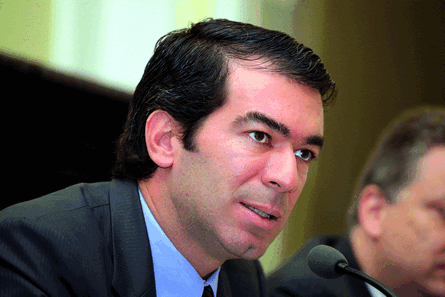EasyJet’s revenue rose nearly 10% in its fiscal first quarter, driven by strong demand and the collapse of UK rival Thomas Cook, prompting the low-cost airline to raise guidance for the remainder of the year.
In a 21 January trading statement, EasyJet says it expects revenue per seat for the first half of its financial year to increase by “mid- to high-single digits” compared with previous guidance of a low- to mid-single-digit rise.
The UK budget carrier expects to deliver a first-half pre-tax loss “better than” the £275 million ($359 million) loss incurred in the first six months of the previous year. EasyJet’s financial year ends on 30 September.
Total group revenue for the three months ended 31 December increased 9.9% to £1.43 billion. This included a 9.7% increase in passenger revenue to £1.12 billion and a 10.8% rise in ancillary revenue to £301 million.
Total airline revenue per seat increased 8.8%, “outperforming expectations”, says EasyJet. It cites a “strong performance” in Berlin, “robust demand” combined with low capacity growth by EasyJet and competitors, and the “benefit” of Thomas Cook’s collapse in September.
EasyJet completed a sale-and-leaseback deal for 10 Airbus A319s during the quarter, generating £114 million in cash.
Costs for the fiscal first quarter were “in line with expectations”, with per-seat costs rising 4.3%, which the carrier says reflects lower capacity growth as well as the ownership costs associated with new aircraft deliveries and the cancellation of 813 flights as a result of December’s national strikes in France.
In a research note issued today, Bernstein analysts argue that cost control at EasyJet “remains wanting” and that “more could be done on this front”.
The UK airline confirmed today that former Ryanair chief operating officer Peter Bellew has now joined EasyJet in the same role. Bernstein states that this appointment could “provide a catalyst for progress” on cost control going forward.
Ryanair had attempted to prevent Bellew from joining its rival, citing a 12-month non-compete clause, but this was rejected by the Irish High Court.
EasyJet expects its full-year fuel bill to come in at about £1.64 billion, which includes a £25 million investment in its carbon-offsetting programme. The airline began offsetting carbon emissions across its entire network in November. Chief executive Johan Lundgren describes offsetting as an “interim measure”, noting that EasyJet will “continue to work on reducing our carbon footprint in the short term, coupled with long-term work to support the development of new technology, including hybrid and electric planes, to reinvent aviation for the long term”.
Passenger numbers increased 2.8% year-on-year in the quarter ended 31 December, and the airline increased capacity 1%. This resulted in a 1.6-percentage-point increase in load factor to 91.3%.
EasyJet says it will grow capacity by 1.5% in the first half of the financial year, slightly lower than the previously planned 1.7% growth, primarily as a result of French air traffic control strikes. The airline expects to grow full-year capacity by about 3%.
Bernstein analysts describe this capacity growth as “moderate”, and question whether EasyJet “may have opportunities to grow faster now and reap the benefits of higher yields”.
The airline said today that EasyJet Holidays – the package-holiday business launched in November – has been “well received” by customers and is expected to “at least break even” by the end of the financial year.


























